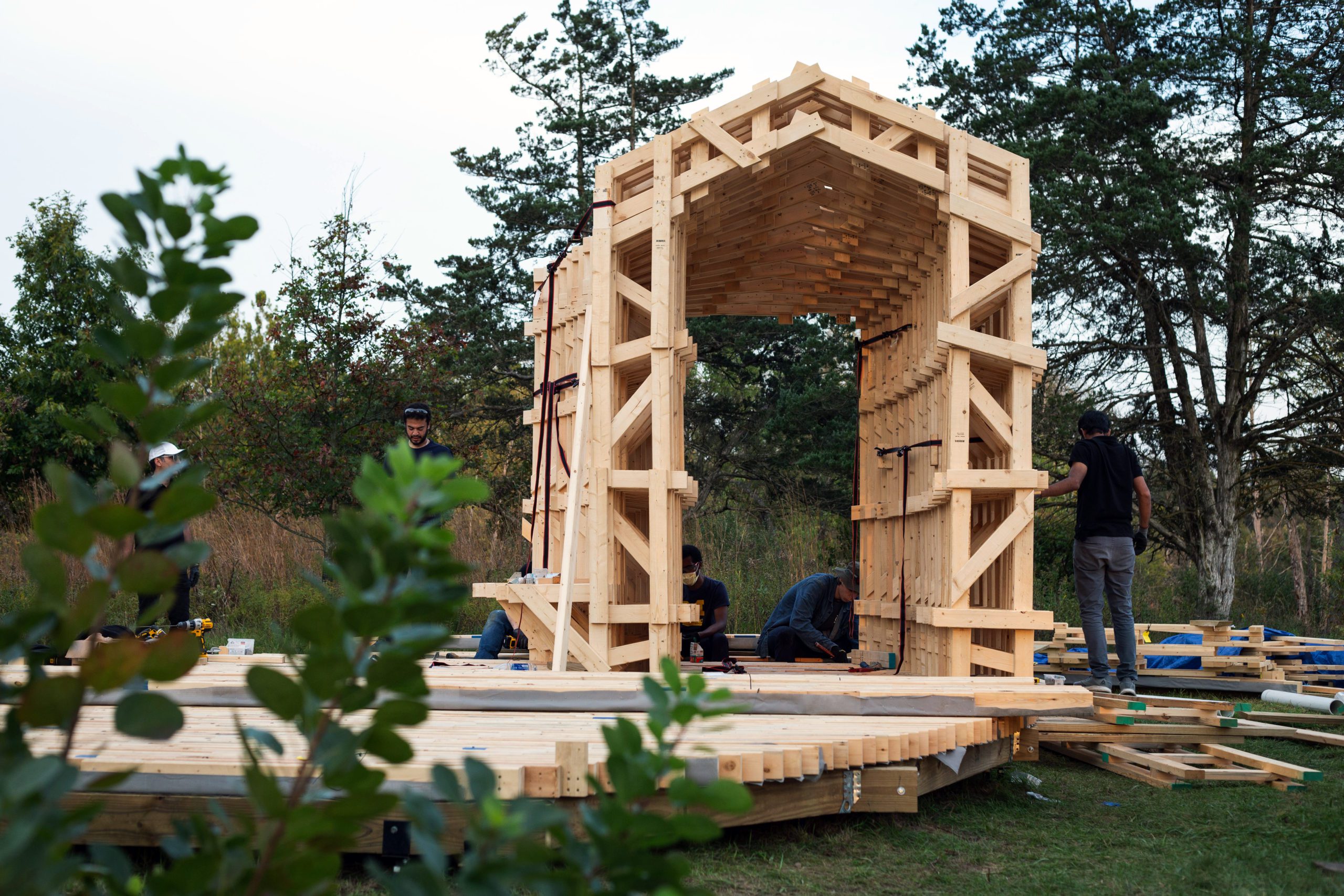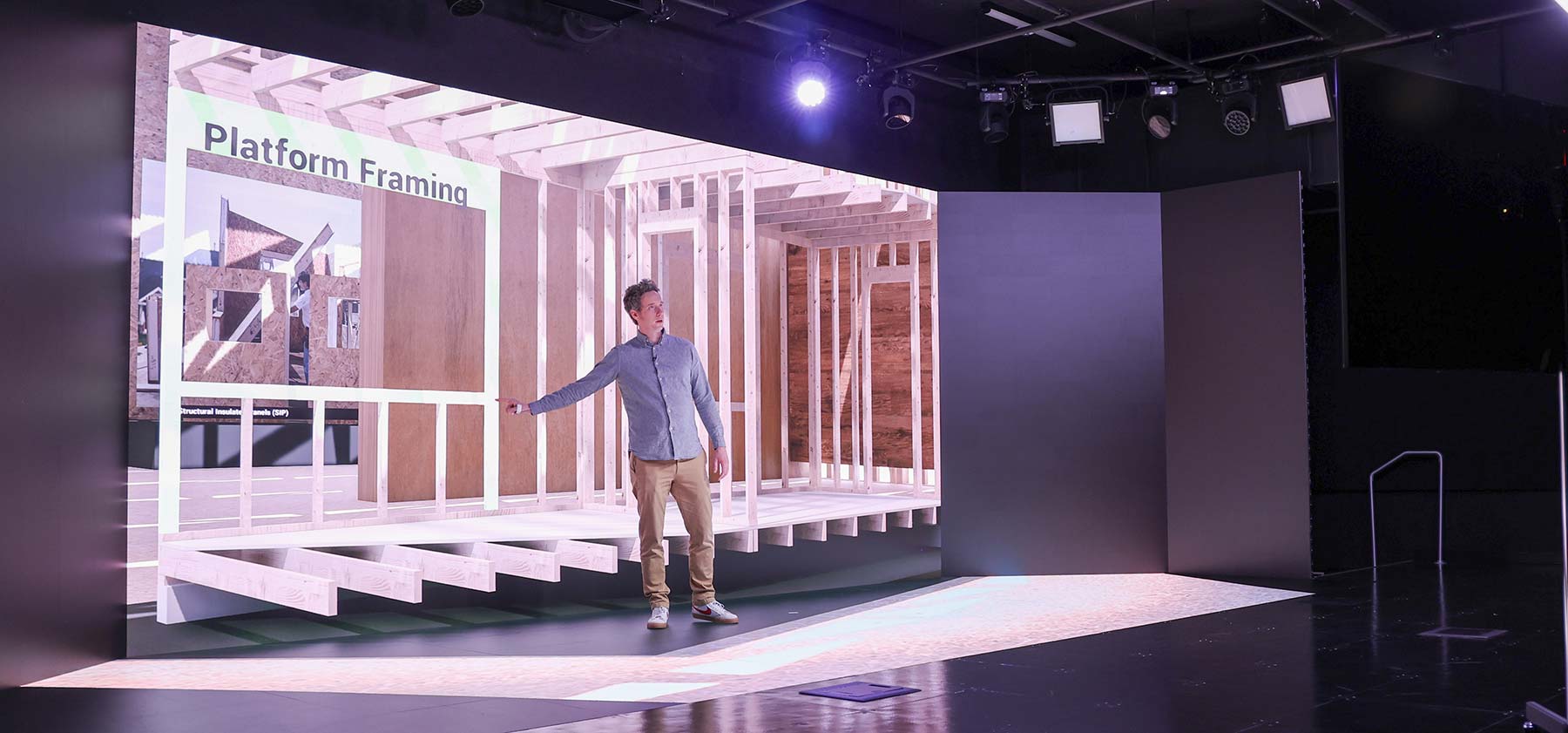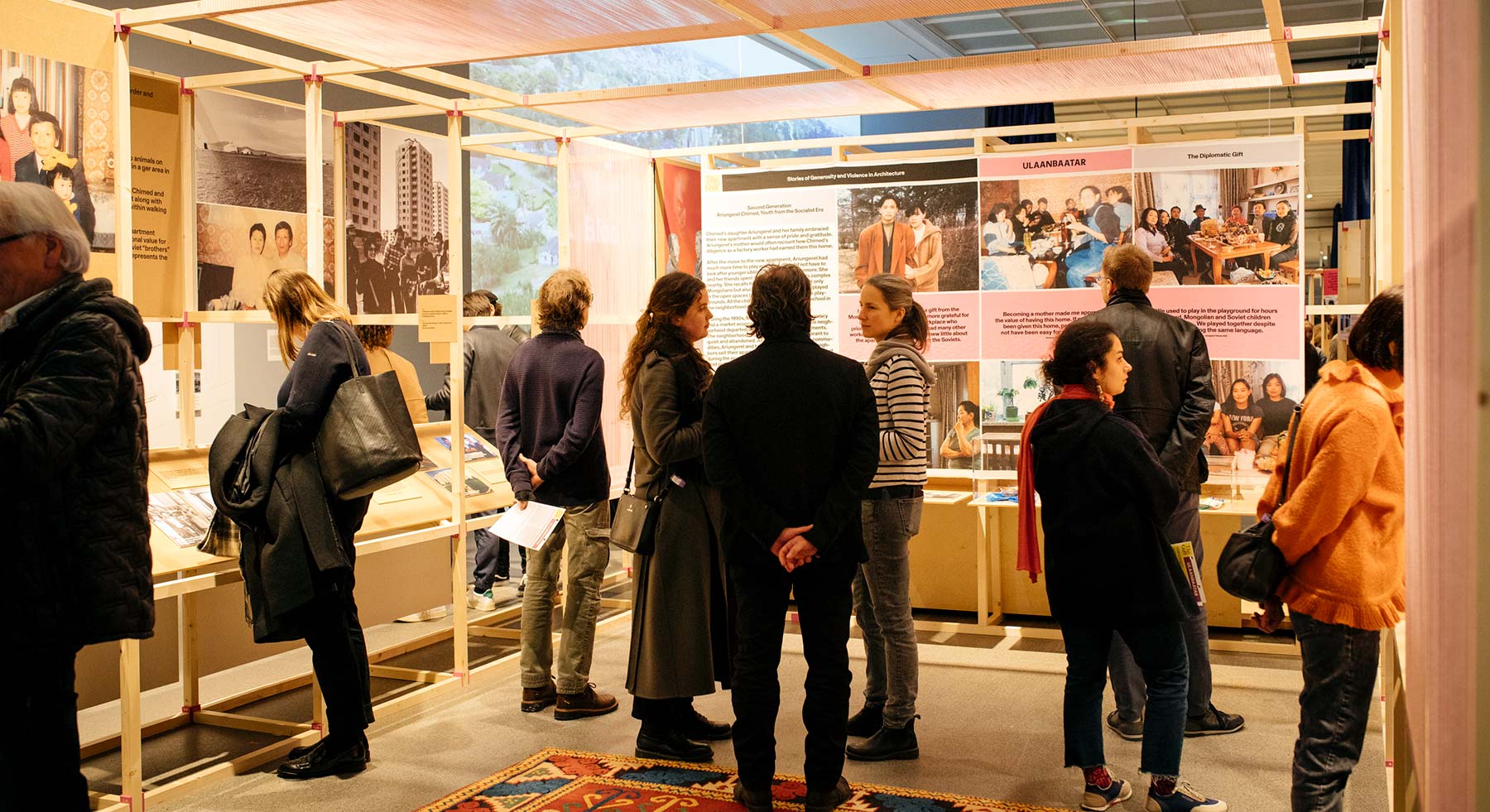A new structure at the University of Michigan’s Matthaei Botanical Gardens brings leading-edge fabrication research to the public space.
Led by Arash Adel, assistant professor of architecture at U-M’s Taubman College of Architecture and Urban Planning, the timber pavilion — known as Robotically Fabricated Structure, or RFS — explores new responsible and precise methods of construction.
RFS was designed and fabricated by Adel and research assistants in his ADR Laboratory, along with students in Taubman College’s master’s program in digital and material technologies. The team employed the university’s state-of-the-art robotic fabrication facilities and partnered with the structural engineering firm Silman to evaluate RFS for structural performance and building code requirements.
“This outdoor structure offers new public gathering points while maintaining an open-air condition that respects the pandemic as well as people’s desire to feel part of the beautiful natural setting that surrounds them,” said Adel.
RFS is built from standard, off-the-shelf lumber that is regionally sourced. Using algorithms developed for this project, robots at Taubman College’s digital fabrication lab processed this standard material and assembled the elements into bespoke timber subassemblies — minimizing construction waste as a result.
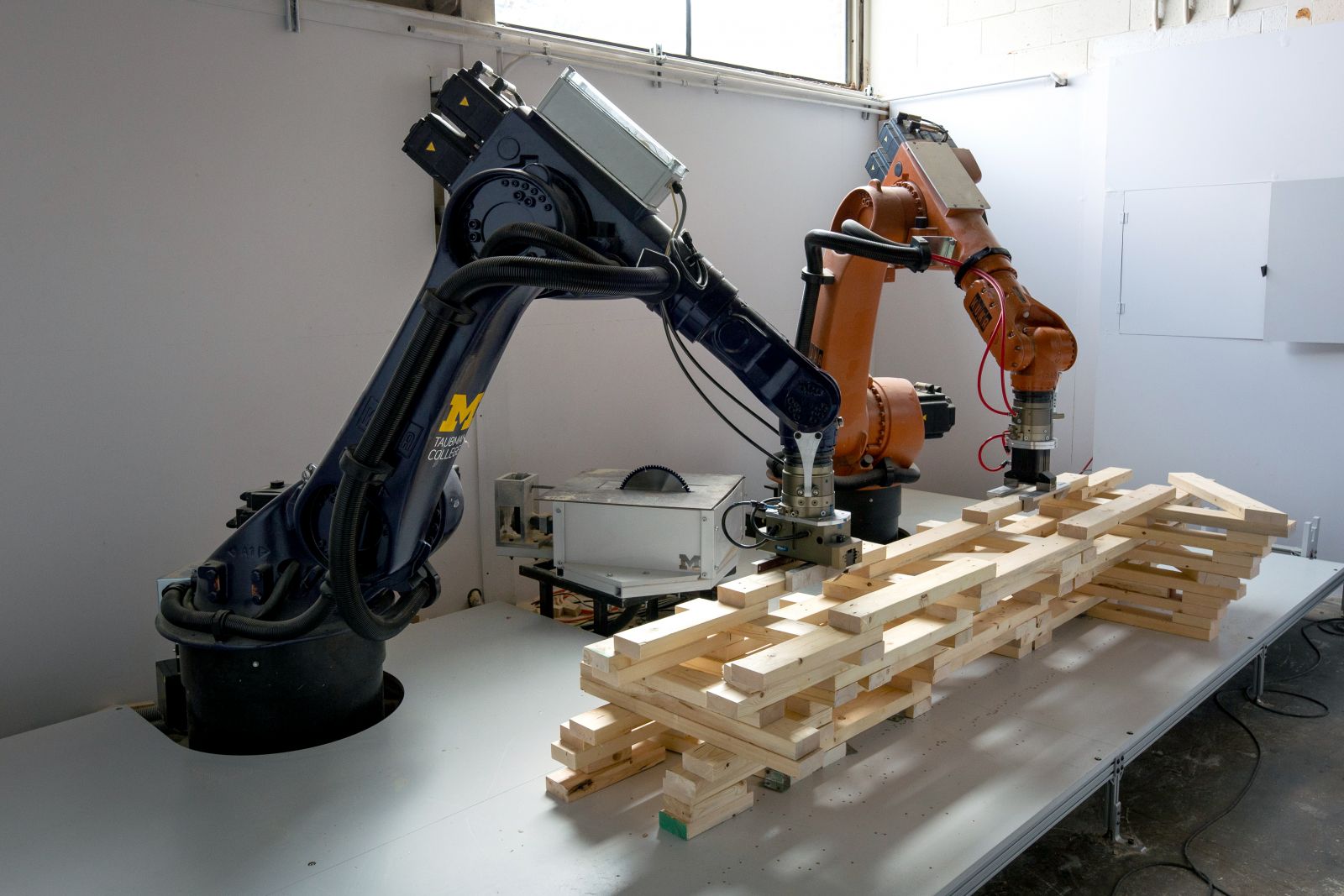
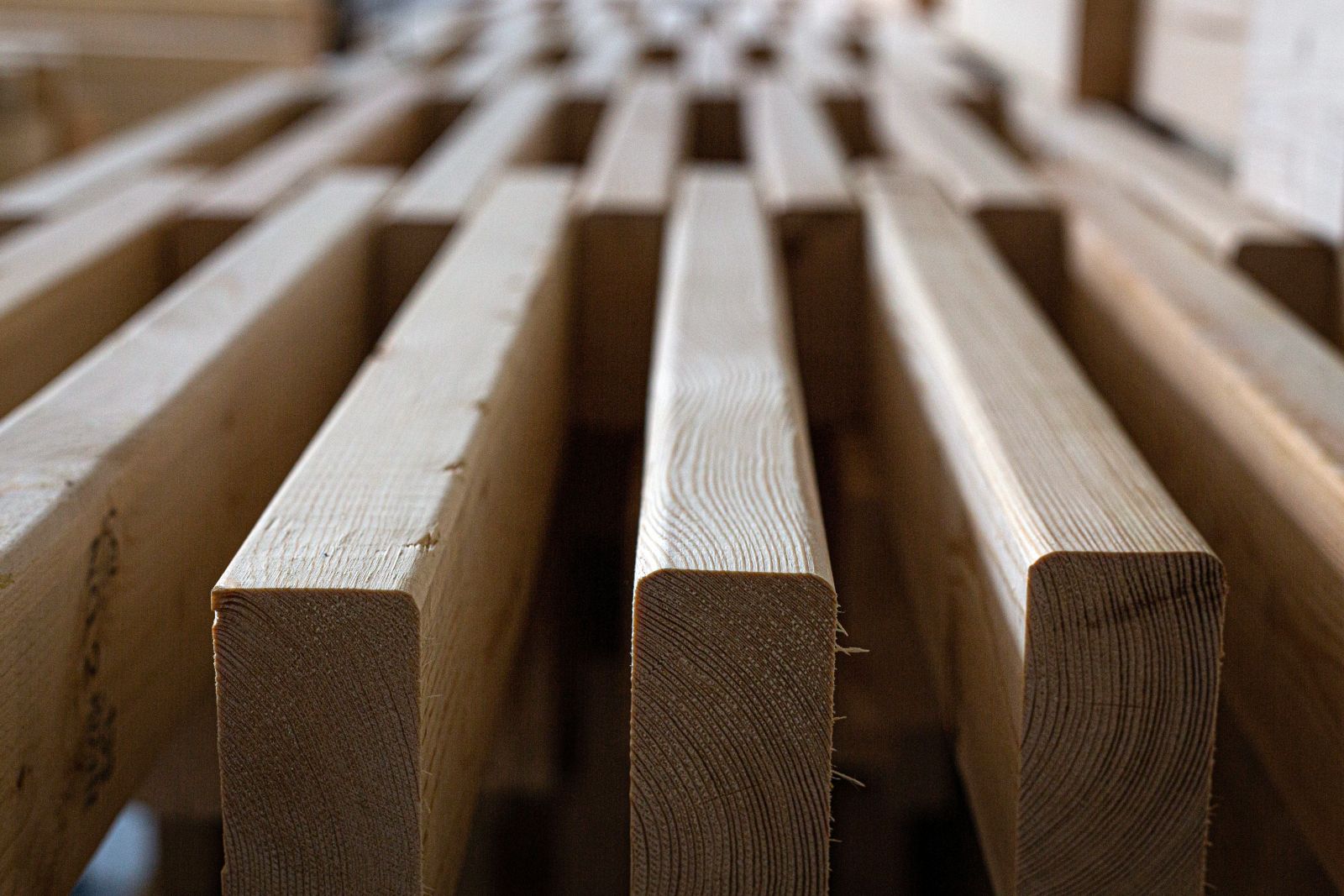
Part of the efficiency stems from the robots’ ability to mass-customize prefabricated modules and assembly routines that are difficult through conventional means and methods. This type of fabrication system is a novel approach to reconsidering issues of material use, labor, and the environment. By building at full-scale, RFS is able to actively contribute to larger advancement in carbon neutrality and sustainable building practices.
“We are fully invested in advancing the larger questions of how and why we make, and in discovering and testing new ways of building the future,” Adel said. “Completing RFS enabled research in robotic timber construction to be elevated to the scale and complexities of full and complete building systems beyond the laboratory. As such, this design research is committed to ensuring a structurally sound, accessible, and elegant solution.”
The pavilion’s walls and ceiling feature layered, intricate patterns of timber that allow for air flow, as well as shadows and optical effects. The space, which includes seating within or alongside the structure, offers opportunities for exhibitions, small public events, and intimate conversations.
“By placing RFS within the Matthaei Botanical Gardens, we are making the public aware of another way that architects and engineers at U-M are investigating sustainability and novel construction methods,” Adel said. “We also want to provoke conversations about appropriate uses of automation and the interaction between human and robotic creative capacities.
“RFS embodies our shifting responsibilities and opportunities within the built world during times of crisis, as well as the ongoing necessity to better support the environment.”
The public is invited and encouraged to visit the Robotically Fabricated Structure at the University of Michigan’s Matthaei Botanical Gardens, located at 1800 North Dixboro Road in Ann Arbor.
Project Credits:
Principal Investigator and Project Lead: Arash Adel (Assistant Professor of Architecture) | ADR Laboratory
Core Research, Design, and Fabrication Assistants: Ben Lawson, Ryan Craney, Sarah Nail, Gabrielle Clune, Andrew Hoover, Juliette Zidek
Construction Assistants: Abdallah Kamhawi, Tharanesh Varadharajan, Elliot Smithberger, Qian Li, Nadim Hajj Ahmad, Joshua Powell, Ivan Gort-Cabeza de Vaca
Students (MS in Digital and Material Technologies): Ruxin Xie, Daniel Ruan, Xinran Li, Jingwen Song, Mehdi Shirvani, Mackenzie Bruce, Chris Humphrey
Industry Partner: Robert Silman Associates Structural Engineers
Taubman College of Architecture and Urban Planning | University of Michigan
Supported by the Herbert W. and Susan L. Johe Fund

